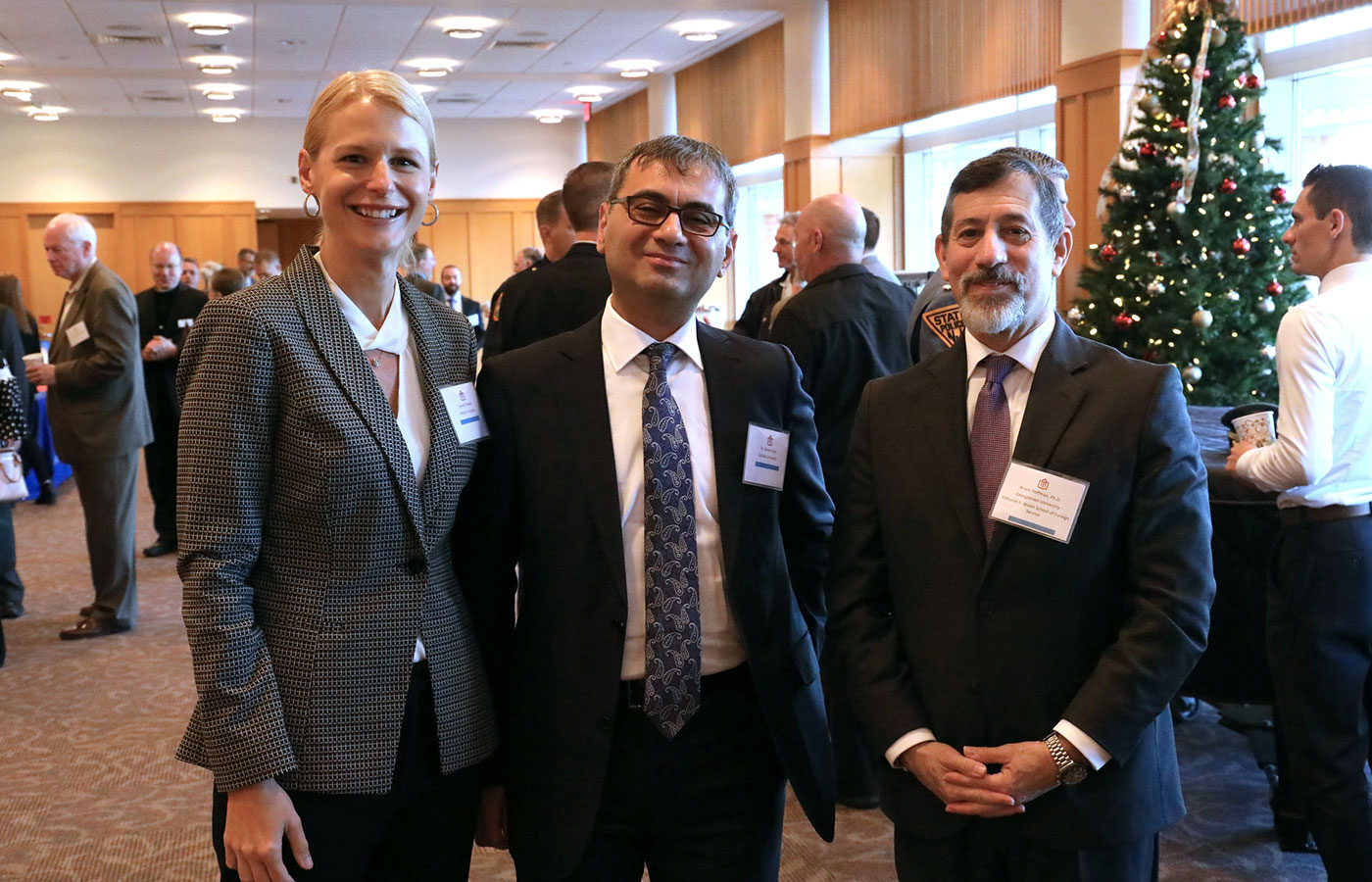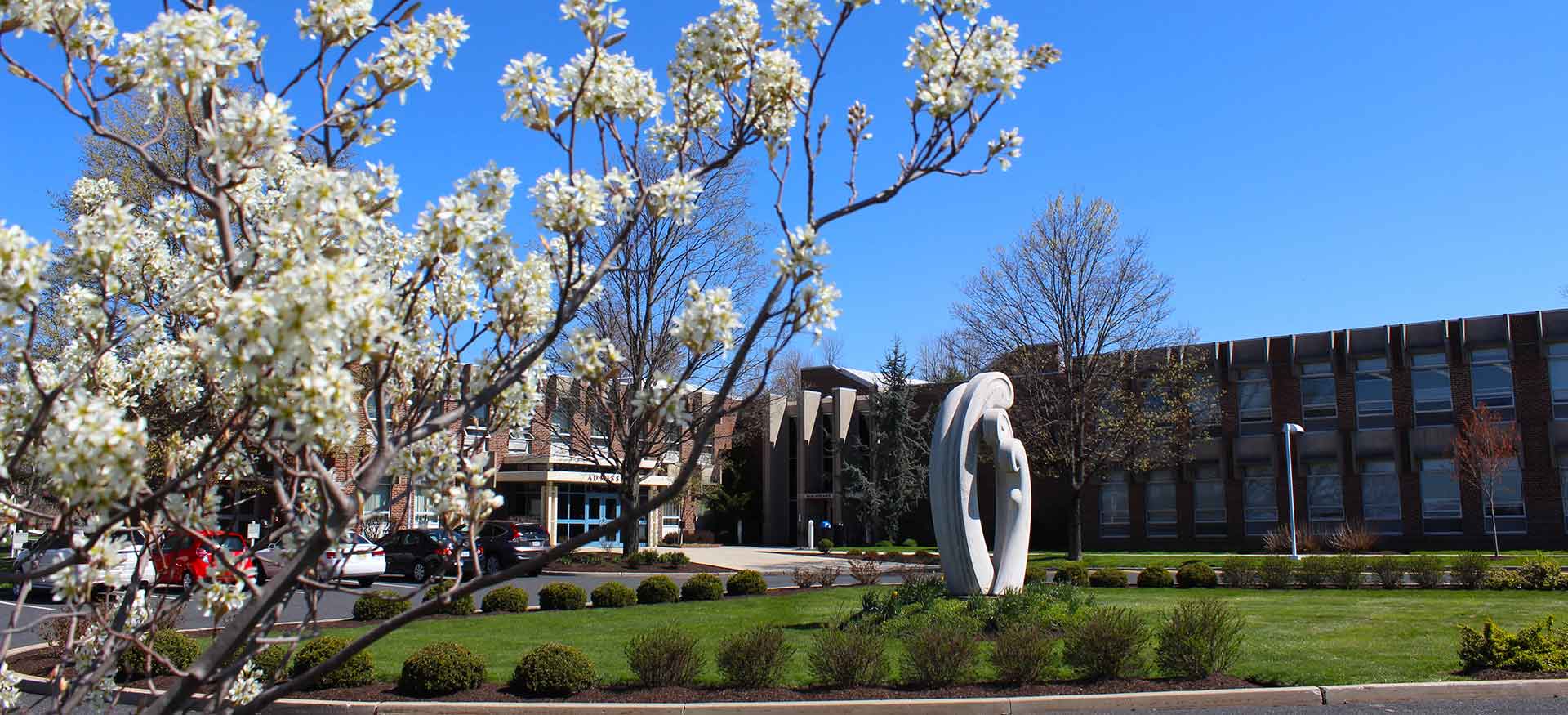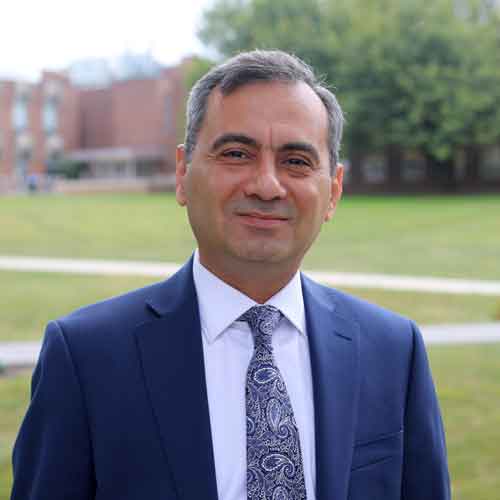News
DeSales Opens New Center for Homeland Security

Counterterrorism and law enforcement experts from across the country helped DeSales University launch its new, highly-anticipated Center for Homeland Security.
“This really is a momentous day,” Father James Greenfield, OSFS ’84, president of DeSales, told the crowd gathered in the DeSales University Center. “This Center for Homeland Security is truly an epic program. We want to use this as a place to focus our attention on what is important, that is to stay secure.”
The center—the first of its kind in the Lehigh Valley and Philadelphia regions—will feature four main components: education, research, outreach, and technology.
Bruce Hoffman, a tenured professor in Georgetown University’s Edmund A. Walsh School of Foreign Service, has spent his career studying terrorism and stressed the need for a multi-disciplinary approach to fighting it.
“When Ahmet [Yayla] sent me the literature about the new programs and the new center—the core message of education, research, and outreach—it resonated completely with my views and experience,” said Hoffman, who served as a commissioner on the Independent Commission to Review the FBI’s Post-9/11 Response to Terrorism and Radicalization. “This center is so timely and so enormously important.”
The center will feature undergraduate degrees in homeland security and criminal justice, as well as a master’s degree in criminal justice with a concentration in homeland security. Students can also earn certificates in the areas of counterterrorism, intelligence, and counterterrorism/digital forensics.
The center will also help students secure mentorships and internships, and it will specialize in training programs geared toward local, state, and national agencies.
Dr. Ahmet Yayla, assistant professor and director of the center, highlighted the importance of thinking globally, telling the crowd that simply providing security for the homeland is not enough, especially with the prevalence of social media.
“What we need to understand is ignorance is our worst enemy,” he said. “If we do not know our enemy, if we do not understand our enemy, if we do not follow the new trends and the new literature, we may not be able to stay at least one step ahead and prevent future terrorist attacks.”
Yayla and Hoffman also served on a panel discussing the past, present, and future of countering terrorism alongside Colin P. Clarke, a senior research fellow at The Soufan Center, and David Wells, a political analyst and researcher in the United Nations Counter-Terrorism Executive Directorate (CTED). The panel touched on issues of radicalization and jihadism, the evolving nature of terrorism, and the changing gender roles in terrorist groups.
For more photos from the event, visit our Flickr album.
Learn more about DeSales University's new Center for Homeland Security






